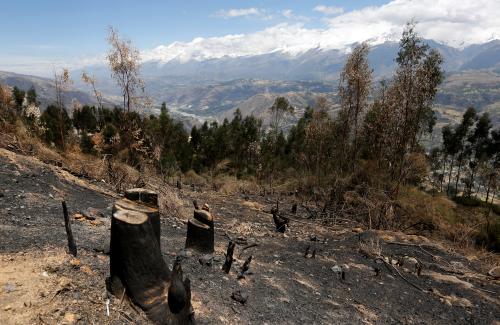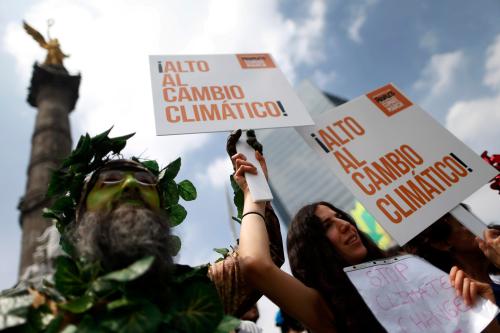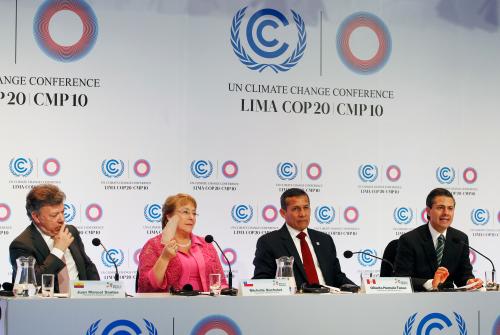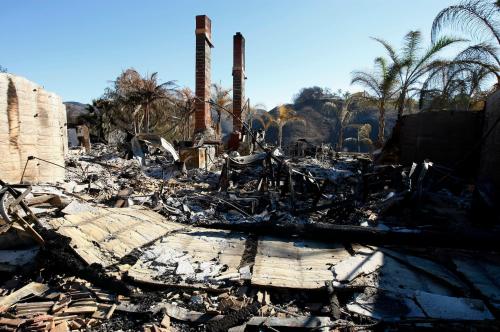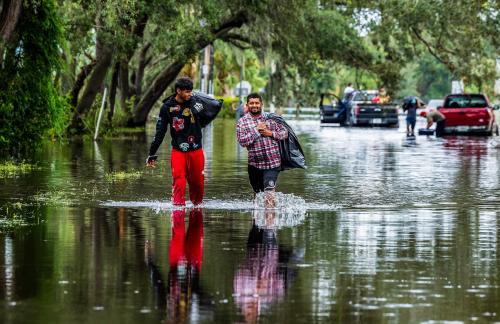In December over 190 countries will converge in Paris to finalize a new global agreement on climate change that is scheduled to come into force in 2020. A central part of it will be countries’ national pledges, or “intended nationally determined contributions” (INDCs), to be submitted this year which will serve as countries’ national climate change action plans. For Latin American countries, the INDCs present an unprecedented opportunity. They can be used as a strategic tool to set countries or at least some sectors on a cleaner path toward low-carbon sustainable development, while building resilience to climate impacts. The manner in which governments define their plans will determine the level of political buy-in from civil society and business. The implementation of ambitious contributions is more likely if constituencies consider them beneficial, credible, and legitimate.
This paper aims to better understand the link between Latin American countries’ proposed climate actions before 2020 and their post-2020 targets under a Paris agreement. We look at why Latin American climate policies and pledges merit attention, and review how Latin American nations are preparing their INDCs. We then examine the context in which five Latin American nations (Mexico, Brazil, Peru, Costa Rica, and Venezuela) are developing their INDCs—what pledges and efforts have already been made and what this context tells us about the likely success of the INDCs. In doing so, we focus on flagship national policies in the areas of energy, forests, cities, and transportation. We address what factors are likely to increase or restrain efforts on climate policy in the region this decade and the next.
Latin American countries are playing an active role at the U.N. climate change talks and some are taking steps to reduce their emissions as part of their pre-2020 voluntary pledges.
Latin American countries are playing an active role at the U.N. climate change talks and some are taking steps to reduce their emissions as part of their pre-2020 voluntary pledges. However, despite some progress there are worrying examples suggesting that some countries’ climate policies are not being implemented effectively, or are being undermined by other policies. Whether their climate policies are successful or not will have significant consequences on the likely trajectory of the INDCs and their outcomes. The imperative for climate action is not only based on Latin America’s contribution to global carbon emissions. Rather, a focus on adaptation, increasing the deployment of renewable energy and construction of sustainable transport, reducing fossil fuel subsidies, and protecting biodiversity is essential to build prosperity for all Latin Americans to achieve a more sustainable and resilient development.
The Brookings Institution is committed to quality, independence, and impact.
We are supported by a diverse array of funders. In line with our values and policies, each Brookings publication represents the sole views of its author(s).


